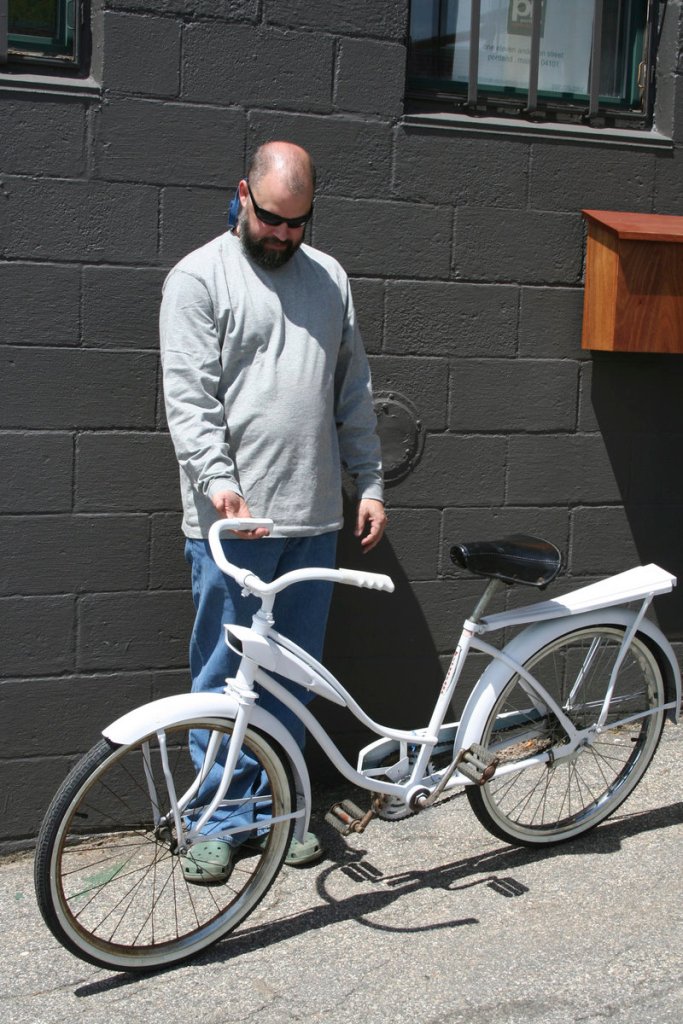PORTLAND — Portland could be joining the growing list of cities that offer bike-sharing programs, but some question whether the city is large enough to support one.
Portland officials will study the issue this spring as part of a planning initiative funded by the U.S. Environmental Protection Agency.
Bike-share programs have been launched in several U.S. cities, including Washington, Denver, Boston and Portland, Ore.
The programs typically use heavy-duty bicycles stored at stations scattered around the city, and members pay an annual fee.
Boston’s program, called Hubway, also includes Brookline, Cambridge and Somerville. The program began in 2011 with 600 bicycles and now has 1,000. It’s run by a private company, Alta Bicycle Share.
Members who join a program pay an annual $85 fee. They can use a credit card or a key fob, a small device with a built-in authentication mechanism.
The system is set up so casual riders, such as tourists, subsidize frequent riders, said Scott Mullen, general manager of Hubway.
For example, someone who is not a member and rents a bicycle with a credit card would pay $32 for a three-hour rental. Members can ride for a half-hour for free for an unlimited number of trips.
He said the system operates just like any kind of public transportation. Users pick up a bicycle at one station, ride to another part of the city and leave the bicycle at another station near their destination.
“It’s just like the bus,” he said. “You don’t take the bus home with you. You get off the bus, and it’s done.”
The city of Boston signed a contract with Alta Bicycle Share worth nearly $6 million to build and operate Hubway for three years. The city used grants and donations to cover the startup costs, while corporate sponsorships and revenue from riders cover annual operating expenses.
Despite Portland’s relatively small population, Mullen said, the program should work here because it’s a “beautifully dense” city and a magnet for tourists.
The EPA selected Portland and four other cities through a competitive process.
As a result, staff from Alta Planning & Design, which is based in Portland, Ore., will come to Portland this spring and hold a series of workshops, likely in May, said Jeff Levine, the city’s director of planning and urban development.
The other cities selected for the planning initiative are Bridgeport, Conn.; Denver; Fort Collins, Colo.; and New Orleans.
Levine said the Northern New England Passenger Authority, which operates Amtrak’s Doweaster train service, is interested in helping sponsor the program because it would open up another travel option for connecting downtown with the Portland Transportation Center.
Cruise ship passengers could also take advantage of a bike share program, Levine said.
He said he could see Portland launching a program with 10 to 15 stations, with roughly 10 bicycles at each station. He said the bicycles cost $1,000 each, and an individual station can cost from $10,000 to $100,000, depending on the level of service.
City Councilor Kevin Donoghue said he believes Portland can support a bike-share program. The city is compact, has an excellent off-road trail network and a strong bike culture, he said
Donoghue has used the bike-share program in Boston and in Washington, which has the most successful bike-share program in the country.
“It’s the best way to see the city,” Donoghue said.
But John Rooks, who set up an ad-hoc bike-share program in Portland about five years ago, said he worries that Portland might not have a large enough population to pay for the administrative costs of running a bike-share program.
“This is my question: How many bicycles does Portland need and does that number equal the revenues to run the program?” he asked. “At some point, it has to be supported by the community and stand on its own. How many bikes do you need to make it a business model?”
Rooks’ program used cheap bicycles and combinations locks. He had eight bicycles in total, all painted white, with lettering that read, “This is your bike.” He published the combination for the locks on the Internet.
There was no fee, and the police department helped him track down the bicycles as they become distributed around the city.
His “social experiment” lasted for two years. There were minimal cases of theft and vandalism, he said. The main problem was keeping up with the maintenance.
Staff Writer Tom Bell can be contacted at 791-6369 or at:
tbell@pressherald.com
Send questions/comments to the editors.



Success. Please wait for the page to reload. If the page does not reload within 5 seconds, please refresh the page.
Enter your email and password to access comments.
Hi, to comment on stories you must . This profile is in addition to your subscription and website login.
Already have a commenting profile? .
Invalid username/password.
Please check your email to confirm and complete your registration.
Only subscribers are eligible to post comments. Please subscribe or login first for digital access. Here’s why.
Use the form below to reset your password. When you've submitted your account email, we will send an email with a reset code.